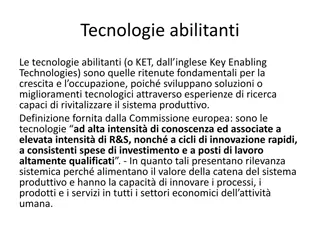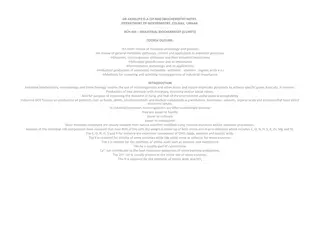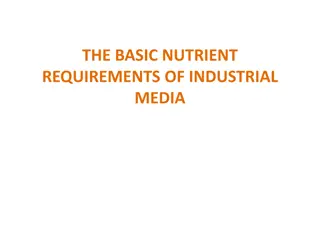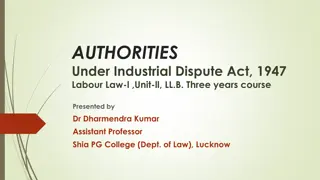
Industrial and Personal Relationships in the Workplace
Discover the meaning and importance of industrial relations, objectives, causes for poor industrial relations, and the significance of maintaining healthy relationships in the workplace. Explore the impact on production, morale, and reducing disputes. Learn about the parties involved and ways to improve communication and cooperation between labor and management.
Download Presentation

Please find below an Image/Link to download the presentation.
The content on the website is provided AS IS for your information and personal use only. It may not be sold, licensed, or shared on other websites without obtaining consent from the author. If you encounter any issues during the download, it is possible that the publisher has removed the file from their server.
You are allowed to download the files provided on this website for personal or commercial use, subject to the condition that they are used lawfully. All files are the property of their respective owners.
The content on the website is provided AS IS for your information and personal use only. It may not be sold, licensed, or shared on other websites without obtaining consent from the author.
E N D
Presentation Transcript
INDUSTRIAL & PERSONAL RELATIONSHIP
Industrial Relationship Meaning & Concept The term of Industrial Relation comprises of two terms: Industry and Relation Industry refers to any productive activity in which an individual (or a group of individual) is/are engaged. Relation means within the industry between the employer and his work. The term industrial relations explains the relationship between employees and management which stem directly or indirectly from union-employer relationship. Industrial relations are the relationships between employees and employers within the organizational settings. The term industrial relations has a broad as well as a narrow outlook. Originally, industrial relations was broadly defined to include the relationships and interactions between employers and employees.
Objectives To maintain industrial democracy based on participation of labour in the management and gains of industry. To establish a proper channel of communication. To increase the morale and discipline of the employees. To safeguard the interest of the labour as well as management by securing the highest level of mutual understanding and good will between all sections in an industry.
Importance of IR Uninterrupted Production: The most important benefit of industrial benefits is that it ensures continuity of production. This means continuous employment for all involved right from managers to workers. Reduction in Industrial Disputes: Good industrial relations reduce industrial disputes. Industrial peace helps in promoting co-operation and increasing production. High Morale: Good industrial relations improve the morale of the employees and motivate the workers to work more and better. Reduced Wastage: Good industrial relations are maintained on the basis of co-operation and recognition of each other. It helps to reduce wastage of material, manpower and costs.
Causes for Poor IR Economical causes: Poor working condition are the main causes for unhealthy relations between management and labour. Organisational causes: Faulty communication system, unfair practices, non- recognition of trade unions and labour laws are also some other cause of poor relations in industry. Social causes: Uninteresting nature of work is the main social cause of poor industrial relations. Psychological causes: Lack of job security, nonrecognition of merit and performance, poor interpersonal relations are the psychological reasons for unsatisfactory employer-employee relations. Political causes: Multiple unions, interunion rivalry weaken the trade unions. Defective trade unions system prevailing in the country has been ane of the most responsible causes for industrial disputes in the country.
Personal Relationship All the regulatory requirements throughout the world talk about handling the pharmaceutical process by trained people. Trained people are those who have knowledge, skill and attitude, which is appropriate positive. WHO remark about personal- it says, the establishment and maintenance of a satisfactory system of quality assurance and the correct manufacture and control pharmaceutical product and active ingredient rely upon people. Individual responsibilities should be clearly understood by the individuals and recorded. All personnel should be aware of the principles of GMP that affect them and receive initial and continuing training, including hygiene instructions, relevant to their needs.
Key Personal Key personal include: The Head of Production The Head of Quality Assurance The Head of Quality Control
Responsibilities of the Head of the Production Department To ensure that products are produced and stored according to the appropriate documentation in order to obtain the required quality. To approve the instructions relating to production operations and ensure their strict implementation. To check the maintenance of his department, premises and equipment. To ensure that the appropriate validation are done.
Responsibilities of the Head of the Quality Assurance Department Inspect the final reports to confirm that the methods, procedures and observations are accurately and completely describe, and that the reported results were accurately and completely reflects the raw data of the studies. Prepare and sign a statement, to be included with the final report.
Responsibilities of the Head of the Quality Control Department To approval or reject, as he sees fit, starting material, packaging material and intermediate, bulk and finished products. To evaluate batch-batch records. To ensure that all necessary testing is carried out. To check the maintenance of his department, premises and equipment.






















